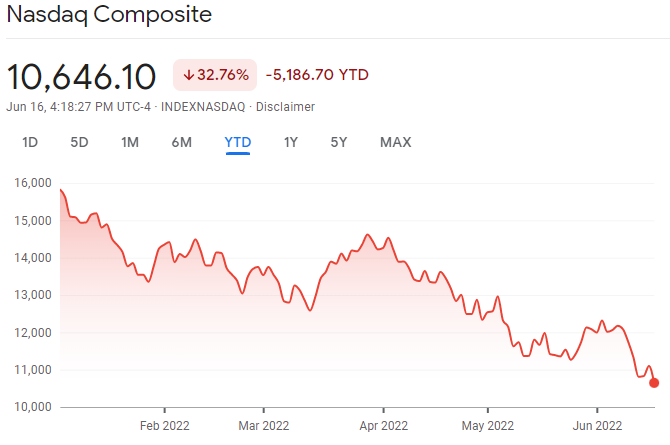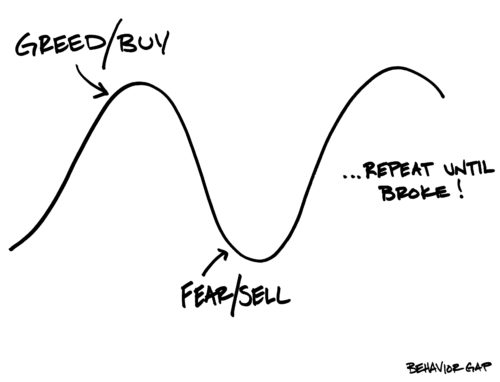 By Ellie Williams
By Ellie Williams
Special to the Financial Independence Hub
Meeting people through networking has a huge impact on you in more ways than you think. By connecting with people in your field or with colleagues in vastly different industries at networking events, you can benefit from a multitude of tools and skills that will help further your career. As a professional, it’s essential that you take advantage of networking opportunities so you can maximize your career growth. Here are some ways that networking can help you advance your career.
Make Long Lasting Professional Relationships
“Networking is an important part of being an entrepreneur, but it’s not always easy. It can be awkward to be at a networking event where everyone is hovering above the hors d’oeuvres or clutching their cocktails. However, networking can help you create long-lasting professional relationships. Networking events are a great way to meet like-minded people with the same interests, passions and goals as you. These connections can become essential for your career growth and can help you climb the professional ladder. Sometimes these relationships can turn into real friendships!” – Rich Rudzinski, Founder and CEO of Tragic Media, Oversight.co, and Drivey.com
More Opportunities
“While networking is great for building verbal skills and branding yourself as a worker, it can also open the door to tons of opportunities that you would’ve never had access to before. The more people you connect with, the more opportunities you’ll be exposed to, such as an inside scoop about a job that hasn’t been posted about yet or someone who wants to mentor you. Knowing people at different professional levels is beneficial when it comes to different job opportunities, so it’s best to make sure you’re taking the time to build relationships with everyone. People will appreciate you going out of your way to talk to them so it’s always smart to push yourself and connect with new people – you never know what may come out of it!” – Jim Williams, Outreach Manager for Ziebart
Build Interpersonal Skills
“While it can be a little daunting and even quite scary walking into a room when you don’t know anyone, it may prove to be the best thing you have done yet. Networking to grow your career is also a great way of building your interpersonal skills while getting to know someone. People want to work with those who are easily approachable and personable. By showing your true character and letting your personality shine, you can garner more interest from those alike. In doing so, it’ll become easier to build connections and network with others. It’ll also make you feel comfortable talking about yourself, your achievements and your career goals moving forward. This may also lead to potential business partnerships, especially if your goals align with those of other people you end up networking with. “ – Gregg Dean, Co-Founder and CEO of Layla Sleep
Help get your Face Noticed
“The best thing about networking is that you are able to get your face out there, so that you are easily noticed the next time you attend another networking event. Sometimes getting noticed in a room full of people is half the battle. Once you make your presence known, it could work to your favor by attracting more people to you and getting to know them better. In addition to this, you can learn how to build a rapport with those you are networking with as well as learn to listen attentively in order to ask more follow-up questions. So, don’t be afraid to put yourself out there.” – Kate Lipman, Sales & Marketing Consultant of embrace Scar Therapy
Find a Mentor
“Working with a mentor is life-changing because it helps you understand who you are and what you want to become. Networking can help you choose a mentor who will give you the best insight into your current phase of life or career level. Once they understand your skills and abilities, they may put you to work on a specific task to see how well you perform. The relationship between a mentor and a mentee must be built upon trust, honesty, and transparency. When you need someone that you can trust, having a mentor as an objective third party is a great resource. After you’ve experienced life with them, you may want to share your experiences with others too, which helps you become a better leader yourself and provides you with a new perspective on life.” – Megan Jones, Community Outreach Manager for NutraSweet Natural
Hidden Job Opportunities
“You’ll want to build aspiring relationships for potential opportunities, especially for a small business. Whether it’s through family, friends, an acquaintance, or small talk at the store, this is one of the best ways to stand out from others. If you have a genuine interest in getting to know someone’s career that you know of or recently met, ask them for coffee or if they have time for a quick chat to learn more about what they do. Even if there are no current job openings for the position, one might open later down the road and they might remember you over someone else.” – Chris Hunter, Co-Founder & CEO of Koia
Build up your Confidence
“Everyone knows how it feels to attend their first career fair, job interview, or any business event. The training you gain from networking events helps you boost your self-confidence and promote self-esteem.
First, start with your physical appearance. Dress well, groom yourself, and learn to walk and talk like a confident person. Now, focus on your personality and how you conversate. Confidence grows with your success in life and these networking events are key to help you excel in your self-esteem. It is a trait that comes with experience. Over time, you will get better at everything you do. This happens to everybody, even the people who are confident. These business events and networking will eventually become a breeze and you will feel confident, comfortable and optimistic. Keep putting yourself out there and you will only continue to grow!” – Adrian Pereira, Founder and Ceo of ecopeaco.com
Find Additions to your Team
“You never know who you’ll come across; you may meet a great addition to the team you’re building or managing. Whether you’re building a real estate team or are a gym owner looking for personal trainers, it’s beneficial to network whenever you have the opportunity. Getting to know someone personally, shaking their hand, and listening to their stories/experiences can be more beneficial than traditional interviews. You’ll likely get to speak to them and get open and honest responses, whereas in an office interview, they may say what they think you want to hear.” -Kevin Mako, Founder of Mako Design + Invent
Boost Collaboration
“Developing new professional contacts is always a beneficial way to advance your career. Aside from increasing your potential job opportunities, networking can also lead to new and innovative ideas. For example, if you establish a professional relationship with someone from a completely different industry, they can help you think outside of your usual parameters. By expanding your network with a diverse group of individuals, you can learn different ways of viewing problems, creating solutions, and even generating creative ideas. Thus, networking can help you become a more well-rounded and valuable professional.” – Lev Berlin, Founder of Recipal
Gain Valuable Knowledge
“Listening is an art, and it’s a pivotal part of networking. Not only can you gain trust and create genuine connections by taking a break and listening to what people are saying, but you can also gain valuable business knowledge. A good listener does not impose their thoughts and opinions when someone else is speaking to them because they’re focused on what they can learn from the interaction. If you want to learn as much as you can about your specific industry – or business in general – you must be a good listener.” – Hilary Kozak, VP of Marketing for LivSmooth
Amplify Clarity
“All connections that you create will have an impact in one way or another. Connecting and sharing with others allows you to gain a new perspective and gives you the opportunity to gain clarity about your career goals. To amplify your networking and career, it can be great to network with weaker connections, or acquaintances that lie outside of your immediate social group or circle. By stepping out of your comfort zone and expanding your reach, you can increase your social skills and build your knowledge base which will advance your career. Leverage networking to find clarity in your current situation and a roadmap for getting ahead.” – Bill Lyons, CEO of Griffin Funding
Stay up to date with Industry Trends
“A great way to grow your career with networking is by gaining valuable insight on trends! When networking with people in your field in-person or on social media platforms, you will become aware of new trends and the latest industry developments through sharing, during meetings, while having small talk with co-worker, while going through LinkedIn, and more. The digital world will be a huge ally in this aspect as most new industry news will be posted on social media. Therefore, networking puts you and your business at the front of the competition when it comes to new ideas and trends you can utilize in your social media and marketing campaigns. ” – Himanshu Agarwal, Senior VP of Solutions for WorkBoard
Create an Interpersonal Brand
“Networking becomes a major part of creating a personal brand because as an individual all of your professional interactions play a part in your brand identity. Not all of us work at a small company where we all know each other, but oftentimes you’ll get put on a project where your reputation and personal brand will be discussed. Each time you interact with a client, or another professional outside of your job, you don’t know the potential these interactions have. It is from these weak networking ties that your confidence in yourself and personal branding will matter. Creating a personal brand for how you want to be perceived and what your values will give you a sense of self which will be evident while networking. – David Ring, Senior Marketing Manager at MCT Trading
Reciprocal Assistance
“Reciprocity is a virtue, and this extends to professional networking as well. The more you help others, the more you prove yourself to be a trustworthy and reliable partner in times of need, which is an asset that everyone desires. As your professional network grows your positive reputation will reach farther in turn. This can become a great boon when you need assistance with or a fresh perspective on a new project that’s coming up. We tend to help others who have helped us, so by expanding your network as far as possible and being courteous and helpful along the way you bring on many more potential hands who can assist you. This is a powerful tool and can quickly turn a daunting task into child’s play due to the expertise from people willing to assist you.” – Adrien Dissous, Global SVP of Marketing at Babo Botanicals
Find New Clients
“One of the best ways networking can help grow your career is by finding new business clients. Networking events are filled with opportunities that could prove fruitful for business-client relationships. Especially for small or personal businesses, great networking can establish long term relationships. Building strong business relationships relies on trust and credibility which can be established through communication and raport. Once you have made the connection, be sure to continually maintain the relationship. Not only does this help increase business for your company and personal business, but it can show upper management that you are commited to the overall success of the company which can contribute to the success of your career.” – Jeffery Pitrak, Marketing and Account Manager at Transient Specialists










